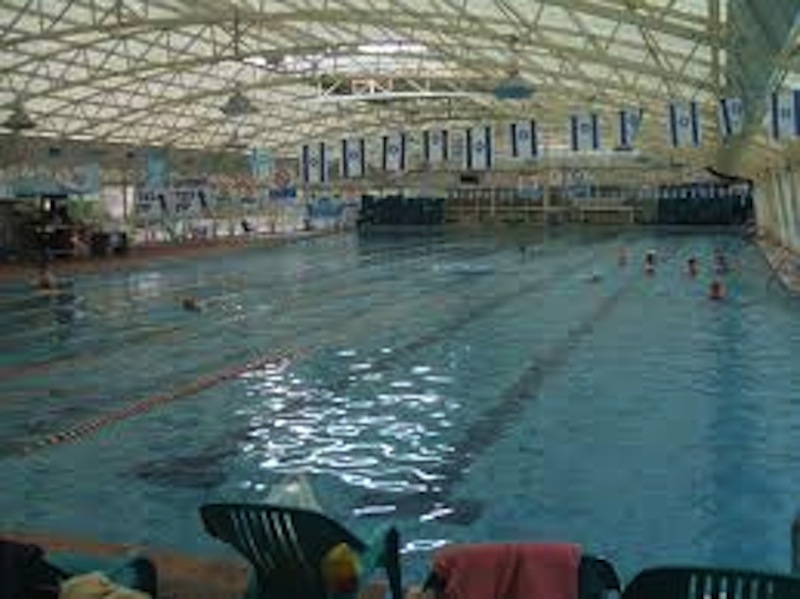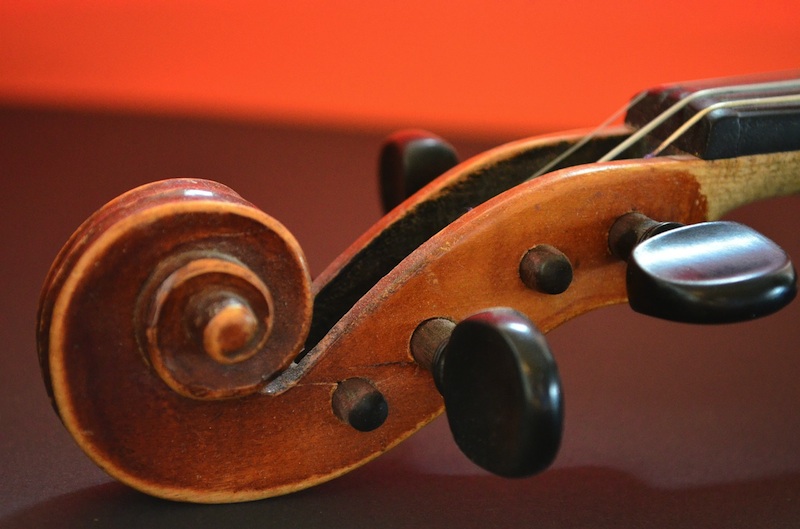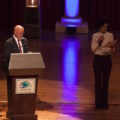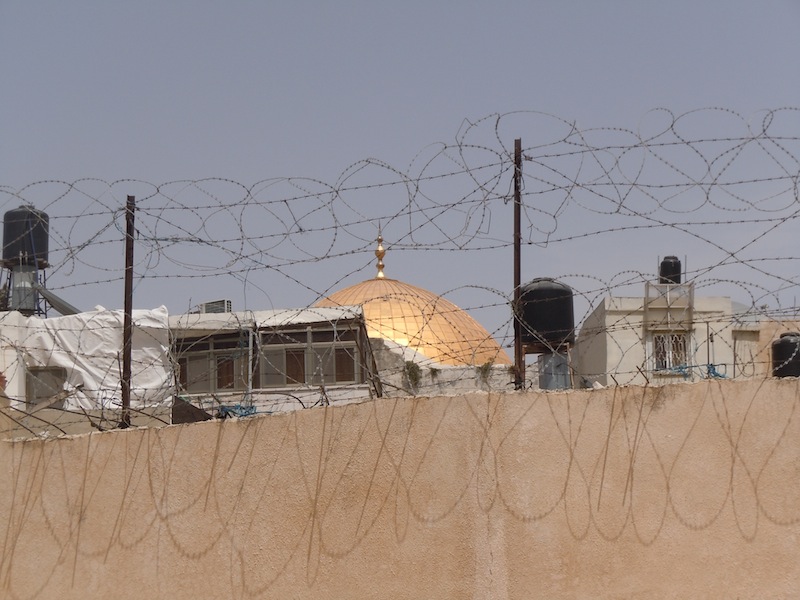
Claudiaexpat wrote this presentation of Jerusalem at the end of her 4 and 1/2 year stay in this fascinating city, but it took her a long time to translate it into English. What you see today is much more than a city’s fact sheet. It is the passionate account of a shocking experience in one of the most complex places on earth. The presentation of Jerusalem has been completely updated by Sandraexpat, so all the info it contains are reliable to this date (October 2017).
Expatclic practices linguistic empathy, and invites you to do the same. We strive to translate our articles to the best of our ability, but correctly translating the expressions of each culture is a challenge that we can face only if we stay open to dialogue about our differences. Should you find inaccuracies or sentences you do not understand in our articles, please get in touch with us: working on them together will broaden reciprocal understanding between our cultures.
Introduction
Living in Jerusalem is a complex but definitely fascinating experience. There are many clichés about life in this intriguing city: one is that any opinion you have before you get here, will be modified if not radically changed once you arrive on the spot. It’s also said that your mood in Jerusalem will go from moments of excitement to others of demoralization, and this would lead to the third cliché that says that when living in Jerusalem you often need to get out to see other places, to breath other atmospheres and take a break from the looming presence of the white stones that built the city.
I personally find that all these statements are true only in part, because the experience of life in Jerusalem is very intimate and personal and involves aspects that go very deep to touch the innermost values of a person. It is true that adapting to this reality involves very complex phases, certainly not common to other relocations. The concentration of cultures and religions generates a richness of experience like no other place I have known so far, but also an amount of tension (positive and not) that is not always easy to manage.
The political situation in Israel and Palestine weighs enormously on everyday life, I will bring concrete examples further on, and is something that pervades all interactions, at all levels: No dinner with friends or acquaintances is spent without analyzing the political situation and/or used to to unburden oneself of the impotence that overwhelms you when witnessing the worsening situation. The (double) linguistic difficulty and the contact with (at least) two very different cultures can be unsettling at first. But I have not met anyone yet who is or has not been happy to live here for a period of time. The richness of history, culture and religion is something absolutely unique, and the stunning beauty of the Old City and the churches is something that gives the stay in Jerusalem a very special taste.
General information
History
The history of Jerusalem can change dramatically depending on who it telling it. I therefore decided to omit this part and let you do your own search 🙂
Geography
Jerusalem is situated on a plateau between the east coast of the Mediterranean and the Dead Sea. It lies at a height of 800 meters above sea level. The neighboring towns are Bethlehem (south), Tel Aviv to the west and Ramallah to the north.
Places of interest
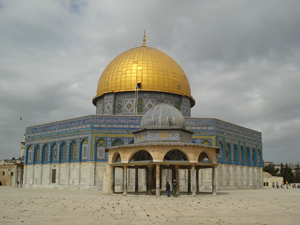 It would be easier to list the points of the city that are of no interest, because Jerusalem, the cradle of the three monotheistic religions, regurgitates of absolutely fascinating churches and places that one never gets tired of visiting again and again. The Old City only, with its hundreds of caves, cisterns, underground passageways and hidden streets, is an adventure in itself.
It would be easier to list the points of the city that are of no interest, because Jerusalem, the cradle of the three monotheistic religions, regurgitates of absolutely fascinating churches and places that one never gets tired of visiting again and again. The Old City only, with its hundreds of caves, cisterns, underground passageways and hidden streets, is an adventure in itself.
Outside Jerusalem what’s definitely worth a trip is the Dead Sea, or a visit to Jericho. Even Bethlehem and Ramallah, within easy reach of Jerusalem, are worth a visit, each one for different reasons.
Tel Aviv is less than an hour’s drive and it is a city that offers a lot, both in terms of culture (museums, concerts, exhibitions) and for shopping and entertainment.
Seaside: there are beaches in Israel where many expats go regularly when the season allows it. Among them: Bat Yam to the south of Jaffa (one of the oldest cities on earth, located a few kms south of Tel Aviv), and Palmahim, a bit further south than Bat Yam.
To the north of Tel Aviv, in Herzylia, there is the Arcadia beach.
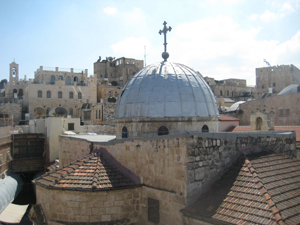
The Dome of the Holy Sepulcher
Hiking and more: Israel and West Bank are a dream for walkers, they both offer wonderful walks, easy and complex ones. There is a group called Walking Palestine, formed by passionate expats and some Palestinians, which gathers regularly (at periods even once a week) to walk in Palestine. The founder of the group, Stefan Szepesi, has written a wonderful book, “Walking Palestine, 25 Journeys into the West Bank”, a must for all passionate walkers.
Another association that organises walks it the Masar Ibrahim Weekly Spring Walks
In Bethlehem you can find VisitPalestine, a tourist information centre with coffee bar that offers excursions and tour packages with multilingual guides to visit Palestine. The owner is the son of a Palestinian and a Danish lady, Lise. Lise offers free tours once a month to the Jerusalem Expat Newtwork, an expat association in Jerusalem.
You can use the Wikiloc app to get useful info on all trails (on foot, bike, motorbike, by car, boat, kayak, skys and even hot air baloon) of the world. You can download it here: www.wikiloc.com.
Climate and temperatures
Jerusalem has a typically Mediterranean climate, with hot summers and relatively mild winters. During the winter it can snow, but temperatures rarely drop drastically (usually never below five/seven degrees Celsius). The sky is almost always blue, the light is amazing.
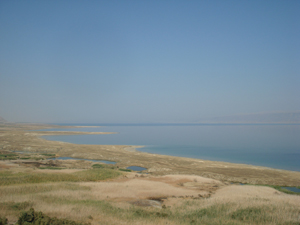
The Dead Sea
Political context
The Israeli government considers Jerusalem as the capital of the State of Israel, but the Palestinian Authority, the United Nations and most countries in the world do not consider it as such. Still, the city is under the total management of the Israeli authorities, that control its life entirely.
Banks, currency and exchange rates
The currency in Jerusalem is the New Israeli Shekel (NIS), available in notes of 20, 50, 100 and 200, and coins of 10, 5, 2, 1 and ½ shekel, in addition to 20 and 10 “agora” (pennies that no one ever wants, but are useful for example to buy bus or parking tickets car).
The exchange rate is as follows:
1 euro = 4,21 NIS (September 2017)
1 USD = 3,5 NIS (September 2017)
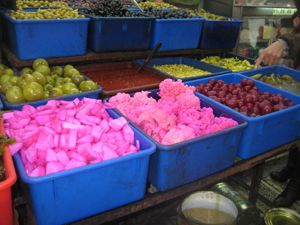 You can change your money in all banks, but it is more convenient (and fast!) to use one of the many places of change that you find both in the east (especially in Salah Addin) and in the west, with a high concentration in the busiest part of Jaffa Road. In these places you can usually withdraw cash with your credit card.
You can change your money in all banks, but it is more convenient (and fast!) to use one of the many places of change that you find both in the east (especially in Salah Addin) and in the west, with a high concentration in the busiest part of Jaffa Road. In these places you can usually withdraw cash with your credit card.
Credit cards are fully used everywhere, from gas stations to hotels, from supermarkets to shoe stores.
You buy everything in NIS, US dollars are rarely accepted (for example by some drivers), except in the bazaars of the old city, where there is a wide choice of currency to pay for purchases.
To open a bank account you must have a working contract and a visa (not tourism). The main banks are Hapoalim (https://www.bankhapoalim.com/) and Leumi (https://english.leumi.co.il/), both have offices in the east and the west. Mercantile (https://www.mercantile.co.il/) has a convenient branch near the American Colony Hotel, with Arab employees only. There are others, but I do know these to be used by expatriates.
Local media
There are some newspapers in English. The most read by the expatriate community is Haaretz (https://www.haaretz.com/), which is distributed with the International Herald Tribune, much more liberal than the Jerusalem Post (https://www.jpost.com/).
For Palestine don’t miss This week in Palestine (https://www.thisweekinpalestine.com/), a very interesting monthly review that relates about current events, culture, events in Palestine and provides touristic and social information.
Online resources:
https://www.maannews.net/
https://english.pnn.ps/
https://english.wafa.ps
Radios
Radio 1 (AM 1458) provides news in English every day at seven in the morning and five o’clock in the afternoon. You also have the BBC World Service on AM 1323
91.3 FM is a Jerusalem radio in Hebrew where you can listen to classical music with very few interruptions (so you hear little spoken language). It is ideal to relax the nerves while driving in the traffic with no rules in Jerusalem.
107.10 FM for Pop music
International community
Most of the international community is represented by international organizations civil servants (UN, Red Cross and ngos) and journalists. There’s also a wide presence of religious functionaries.
Formalities
Jerusalem does not have an international airport. The most common access is by the Ben Gurion airport in Tel Aviv. You can also reach Jerusalem by road from the border with Jordan, but since I am writing this article for people who come to Jerusalem to settle in and not for pleasure, I will consider the most common situation, i.e .the entry by air from Tel Aviv.
Passengers flying to Israel are often carefully controlled at their departure point, especially if they travel with an Israeli airline. In this case, it is imperative that you arrive at the airport of departure (in any city in the States or Europe) a long time before the departure time: controls are very accurate, and it is not uncommon to have your luggage fully unpacked to analyze its content object by object.
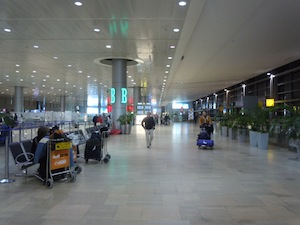 When arriving in Tel Aviv, though, it is extremely rare that your luggage is checked. Once past the passport control, getting your luggage and leaving the airport is very quick.
When arriving in Tel Aviv, though, it is extremely rare that your luggage is checked. Once past the passport control, getting your luggage and leaving the airport is very quick.
Citizens that don’t need a visa to enter Israel will be given a tourist visa of a three months period upon arrival.
Some years ago they stopped stamping your passport upon arrival or departure. They give you a blue slip of paper instead, which indicates the length of your permitted stay in Israel. Usually, as I said, you get three months, but it can happen that they give you less (for instance if you do not have a valid reason to enter the country, if you are seen as suspicious or if you contradict yourself in case they interrogate you.
If you come as an accompanying spouse, your service visa will be processed alongside the one of your husband or wife. If not, you’ll have to leave the country and come back in every three months. A service visa is usually granted to those who have a working contract here, and to their accompanying families. There is also a religious visa. The service visa has a duration of one year. The procedure is taken care of by the Ministry of External Relations, and it is usually the employer who is dealing with it.
If taking care of your visa is up to you (or if you do not have a job contract in Israel and want to apply for an extended tourist visa), you will have to follow a long and intricate procedure. I am not going to explain it here, but if you need specific infos, feel free to contact me.
When leaving Ben Gurion airport, if you fly outside of Israel, the first step is an interview and luggage check (you can read all about the procedure in this article). You will be given a pink slip of paper (exit permit) after the passport control. They now have machines to electronically read your passport, so that you can avoid the often inhospitable and cold contact with the functionaries.
What you can bring in your suitcase
You can introduce in Israel two bottles of wine and other liquors and 250 cigarettes (or 250 grams of tobacco) per person. There is no problem in bringing food.
Entry of animals
In order to enter Israel your pet must have:
– An updated vaccination record
– A certificate of good health issued by a competent veterinary authority no later than seven days prior to travel. This certificate must also state that the animal has been vaccinated against rabies (the vaccine or booster should be done no later than one year and not earlier than one month before his arrival in Israel).
– A declaration with details of your flight to Israel, and stating that the animal has been in your possession for at least 90 days.
This declaration must be sent to this number by fax not more than 48 hours before you fly: +972 3 9688963 or +972 3 9605194
If you follow the procedure to the letter, you should have no problems. My dog is not even been looked at upon arrival, and I know of other animals who have passed through the same indifference. It is important that you communicate the arrival time of the animal.
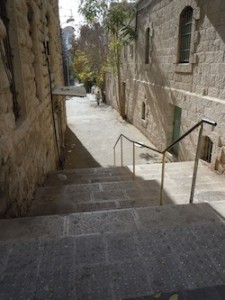 To get the animal out, if it is an animal born here, you have to implant a microchip, do the anti rabies count (your vet will take the blood sample and send it to the lab), and get an export certificate, which can be obtained at the Ministry of Agriculture and Land Development. If your animals comes from another country, it should already have a certificate for the anti rabies count. All you have to do in this case is to show that you have regularly done the updating vaccines at the right moment. You don’t have to do the blood test again, nor implant the microchip. You can proceed to request the export certificate.
To get the animal out, if it is an animal born here, you have to implant a microchip, do the anti rabies count (your vet will take the blood sample and send it to the lab), and get an export certificate, which can be obtained at the Ministry of Agriculture and Land Development. If your animals comes from another country, it should already have a certificate for the anti rabies count. All you have to do in this case is to show that you have regularly done the updating vaccines at the right moment. You don’t have to do the blood test again, nor implant the microchip. You can proceed to request the export certificate.
The office of the Ministry of Agriculture and Land Development is located in a smelly little street called Moshe Wallach. You can reach it with the tram. Go all the way down Jaffa Road, and when you get to the end (where the bus station and the main seat of the Hapoalim are located) get off. It is the tram stop after Mahane Yehuda market. The street is on your left going from the tram stop towards the Hapoalim Bank, and you reach it through a stair. The vet that can give you the certificate is available on Wednesdays only, from 1.30 to 3.30pm. The certificate must not be issued more than one week before you travel, so do calculate well and make sure you are at the Ministry on the right Wednesday and at the right time. Go early, because it can get pretty crowded. You should bring your animal with you, but I went to get the certificate for a friend who had given her cat to someone and I did not have him with me, and there was no problem at all. You have to have you passport and a copy of your plain ticket. The certificate should cost around 40 NIS.
Do not bother to stock up medicines for your pet, you can find everything here and veterinary care is excellent. In the section “the city with pets” I explain how to keep your dog / cat in Jerusalem without any problem.
Spoken languages
The official languages are Hebrew and Arabic. All road signs are written in both languages, and in most cases even in English. You can find your way around with English here, but it is not necessarily a language that you can expect in daily interactions. There are actually many people who do not speak English at all, of speak it in a very limited way.
The Arabic spoken in Palestine is different from the classical Arabic. Many choose to take intensive courses of conversational Palestinian Arabic, in order to be able to communicate orally in everyday life, others prefer to learn classical Arabic (also written and read) because they consider this to be the appropriate basis to start speaking in Palestine. In general, all schools, courses and professors offer the two options.
There are good courses in Arabic at:
Centre for Jerusalem Studies, King Faisal St, Old City
https://www.jerusalem-studies.alquds.edu
E-mail: arabic@cjs.alquds.edu
Tel 02 6287517
and at:
Centre Culturel Français Chateaubriand, https://institutfrancais-jerusalem.org/, the one in Salah Addin Street Tel. 02 62682451 (ask for Mazen).
Private teachers:
Shereen, tel. 052 2492124
Professor Halloun, palestinianarabic@gmail.com
Both courses and private lessons are rather expensive.
I am not aware of courses to learn Hebrew.
Religion (s)
Jerusalem is the holiest city for Christians and Jews, and third in order of importance (after Mecca and Medina) for Muslims. Religion here is definitely very present in every day life. Whether you profess any kind of religion, or you are laic or atheist, you will have to get used to strong religious expressions. Jerusalem regurgitates of churches and tourists visiting them (religious tourism is a lucrative business here, as you can imagine). To give you an example: at Shabbat (Jewish Sunday) the ultra-orthodox Jewish neighbourhoods are closed with barriers. If you by accident enter them in a point that has no barriers, you might meet some fanatics that launch stones at you.
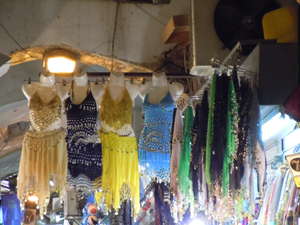
The Old City Souq
Costumes and important cultural aspects
In very general terms we can say that in Jerusalem you happen to meet and interact with at least two sets of cultures, the Israeli and the Palestinian, that in turn encompass a series of sub-cultures and religious habits that mark important differences. To give you an example, both the person born and raised in Israel, secular and liberal, and the ultra-orthodox Jew who lives in the neighborhood of Mea Sharim are considered Israeli by the vast majority of Westerners (although the latter does not consider himself as such). Israeli is also the person born and raised in the United States or France, and that after his/her “alyià” (literally: migration in Hebrew) has acquired Israeli citizenship, and feels all the effects a citizen of this country. Then there are the Palestinians as a general group, but within them you can distinguish between Muslims, Christians, or persons from other lands (Armenians, Copts, etc..) There are also Arabs with an Israeli passport, that enjoy a different life condition than their peers with no Israeli ID. On all these cultural groups and subgroups (I am talking here from the numerical point of view), the historical, political and economical discourse weighs heavily and is very delicate, as you’ll quickly come to understand. I recommend you to be very careful and to well evaluate the situation before you start talking about the conflict or to express political opinions. In some situations it can be very natural, but in others it may lead to really angry reactions, and in extreme cases even cause the breakdown of relationships and friendships.
Still generalizing, in Arab culture men do not generally kiss women, some do not even shake hands with them. If you are introduced to a Palestinian and are uncertain about how to behave, it is better to pull off an open and sincere smile and not to use bodily expressions that may be misjudged or misunderstood. Palestinian women can be very reserved, in which case avoid being too expansive or kissing and hugging. A polite greeting (it is important to learn at least the greetings in Arabic) and a smile will be the best way until you get close to more intimate relationships. Palestinian women who work in international settings are generally more expansive.
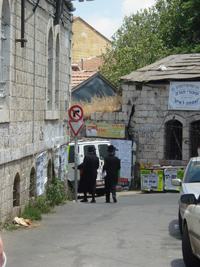
A street in Mea Shearim
During Ramadan it is important to respect the different pace and not to get impatient if things do not go as during the rest of the year. Please note that for thirty days fasting is in force until the evening, and apart from pregnant women, elderly, or sick people, you cannot drink fluids throughout the day, which, especially when Ramadan is advanced, sometimes leads to confusion, slow rhythms, fatigue, especially if associated with a hot climate, as is often the case in Jerusalem.
Palestinians lives are very hard under the Israeli occupation, and they expect solidarity and understanding. If you are not willing to offer it, do not try to have deep relationships with them, because this affects all aspects of their lives and it is a very sensitive point.
I do not know the Israeli culture enough to give you advice on what is appropriate and what must be avoided. Even among Israeli the political discourse is extremely delicate, and you have to be careful about what you say and to whom.
Be careful not to speak Arabic (I mean not to say thanks or goodbye in Arabic in the West of the city) because it might provoke vehement reactions (it’s happened to me a couple of times).
Israelis in general are not very welcoming or smiling. This makes daily interaction rather difficult (on the street, in shops, offices, etc.). It is good not to expect any help so as not to be too disappointed (and act accordingly) when you don’t receive it, because in most cases it won’t come. Do not be surprised when you give way to a car that should let you pass, or to a pedestrian on the street, and receive not even a gesture of thanks, or at least recognition (sometimes it arrives, but in most cases it does not).
Jewish holidays are numerous and some, unfortunately, are cause of incidents and violence (such as Jerusalem Day, in May, during which masses of Israelis of all ages take to the streets to commemorate the occupation of the old city in the Six Day War (1967), and the enthusiasm at times turns into acts of vandalism). Expats generally avoid moving during major celebrations.
Shabbat: Saturday is the Shabbat for the Jews, and a day on which everything stops and nothing is literally expected not to move. Shabbat in Jerusalem is well respected and a great many consider, for instance, a cultural gaffe calling someone to ask for information or to propose business meetings on a Saturday. On Shabbat you should avoid going into ultra-Orthodox Jews neighbourhoods because you can be stoned, a practice not unknown even during the rest of the week, but that most probably occurs on Shabbath. On Fridays shops and restaurants in the western part of the city start closing at 1 or 2pm. Some restaurants open on Saturday.
Local holidays
There are many and complex on both sides.
Even as far as the weekend is concerned, you will find a wide variety of situations, depending on whether you work or your husband/partner works with Muslims, Jews or Christians. You may get a break on Fridays and Sundays, or on Saturdays and Sundays, or on Friday and Saturday, and your break may not match the closing of the school of your children. This may require a very accurate organization.
Jewish holidays (like Yom Kippur and Sukkhot for instance) involve a big organization, which includes closing down streets and implement a series of prohibitions. It is important that you get the right information because for instance at Sukkhot many of the main streets are closed and it is therefore better to avoid circulating, so as not to find yourself in endless traffic jams and end up getting lost. At Yom Kippur driving is plainly forbidden.
Here you can find a detailed presentation of Jewish holidays: https://www.ou.org/holidays
There is an Interfaith Calendar, published by the Israel Interfaith Association (they don’t have a website but you can try and contact them at this number, 02-6203251), which is really useful to help you find your way through the multiple celebrations. I found it at the souvenir shop of the Garden Tomb (https://www.gardentomb.com) that is also a very nice place to visit.


